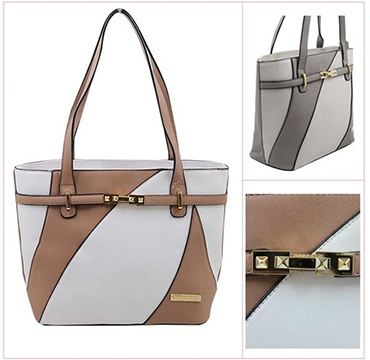The Role of Customization in Choosing a Bag Manufacturer
Time of publication: August 11th ,2024Customization is crucial when choosing a fashion bag manufacturer, especially for brands that want to stand out in a competitive market. Being able to customize products according to specific design and branding requirements allows your brand to offer unique items that resonate with your target audience. Here's why customization is so important and how you can ensure that the manufacturer you partner with can provide the level of customization your brand needs.
Customization Options to Elevate Your Brand
The options for customization go beyond just picking colors and materials. The right manufacturer should offer a wide range of services that allow you to create a product that truly represents your brand.
Material Selection: The material used is the foundation of any good handbag. Whether you want real leather, vegan options, or unique fabrics, the manufacturer should offer a wide range to choose from. Luxury brands often require specific materials that match their high-end image, while eco-friendly brands may prioritize sustainable or recycled materials.
Color and Finish: Color is super important for a brand's identity. Manufacturers should offer a wide range of colors and finishes, like matte, glossy, metallic, and more. This way your brand can easily keep up with the latest trends or meet specific market demands.
Hardware and Accessories: The little details really make the design stand out. Having custom hardware, zippers, clasps, and logos can totally make your product unique. Make sure the manufacturer is able to meet these specific needs, whether it's by creating custom molds or finding special accessories.
Logo and Branding: The logo is like the face of your brand. A good manufacturer should offer different ways to put your logo on the design, like embossing, embroidery, printing, or metal hardware. This not only helps people recognize your brand but also adds a special touch to your products.
Design Flexibility: Beyond materials and colors, you should also consider if the manufacturer can handle intricate patterns, unconventional shapes, or multi-functional features. The more versatile they are, the more creative freedom your brand will have.


For a deeper understanding of the importance of customization in fashion, you can Contact Us to explore more resources.
Balancing Creativity and Practicality in Custom Design
It's important to customize, but it's crucial to find a balance between your creative ideas and practical manufacturing considerations. Not every design can be made on a large scale, so understanding the limitations of your manufacturer can help you save time and resources.
Feasibility of Design: When you suggest a custom design, make sure to work closely with the manufacturer to make sure it can actually be done. This includes considering how the material behaves during production, how complicated the assembly process is, and how long-lasting the final product will be.
Cost Implications: Custom features come with a higher price tag because of fancy materials or more complicated manufacturing processes. So, it's important to consider these costs right from the start and decide if they fit your brand's pricing strategy.
Production Timeline: If you go for custom designs, it might take longer to produce them, especially if we need to make new molds, find unique materials, or create prototypes. Just make sure your schedule can handle any potential delays.
Quality Assurance: The thing is, when you have unique designs, it can get a bit tricky to keep everything consistent during production. So, what you gotta do is make sure you've got some strict quality control measures in place to ensure every single unit meets your brand's standards. Don't forget to stay in touch with the manufacturer throughout the whole production process so that any issues can be sorted out before they become a big deal.
For more tips on managing custom designs, you might want to check out Contact Us on product development.
How to Ensure Consistency in Custom Orders
One of the biggest challenges in custom manufacturing is making sure that every order is consistent. The final product can be affected by different materials, how it's made, and even the weather conditions. Here's how to make sure everything stays the same:
Clear Specifications: Provide detailed specifications for everything, like the materials used, dimensions, and color codes. The more specific your instructions are, the less chance there is for mistakes.
Prototyping and Sampling: Before going into bulk production, make sure to ask for prototypes or samples. This way, you can check if the manufacturer can meet your design requirements and make any necessary adjustments before starting mass production.
Regular Communication: Make sure you have a solid communication plan in place with the manufacturer. It's important to regularly share updates and progress reports to catch any issues early on and keep the production process on track.
Third-Party Quality Checks: Consider getting a third-party quality control service to check the products before they leave the manufacturer. This way, you can have an extra guarantee that the products meet your standards.
Supplier Relationship: Build a strong, long-term relationship with your manufacturer. Over time, they will better understand your brand's needs, leading to more consistent results with each order.
The key to keeping our brand strong is making sure that custom orders are always consistent. If you want to know more about how we manage custom production and maintain quality, Contact Us to get more valuable industry insights.
By focusing on customization, your brand can stand out in the market by offering products that not only meet but exceed customer expectations. Partnering with the right manufacturer who can deliver on these customizations will be a significant asset to your brand's growth and success.

